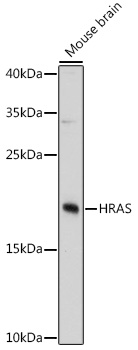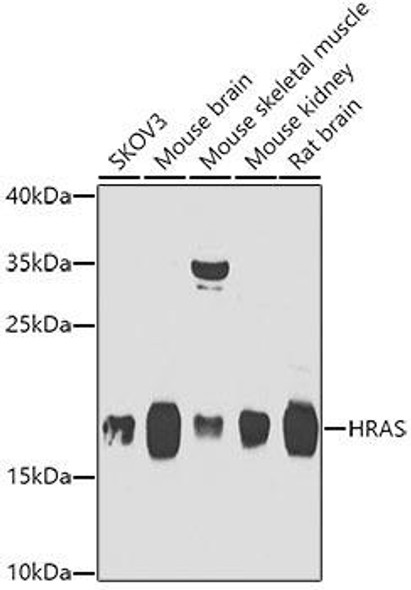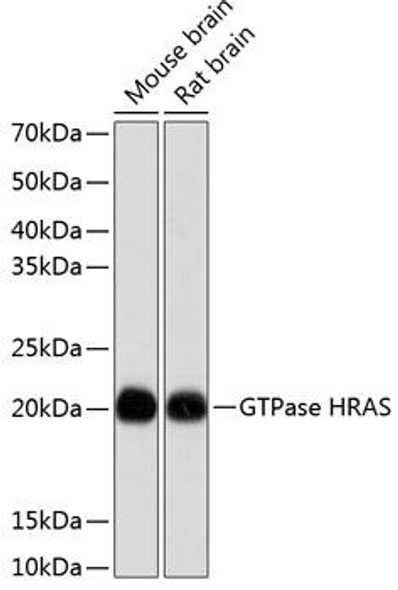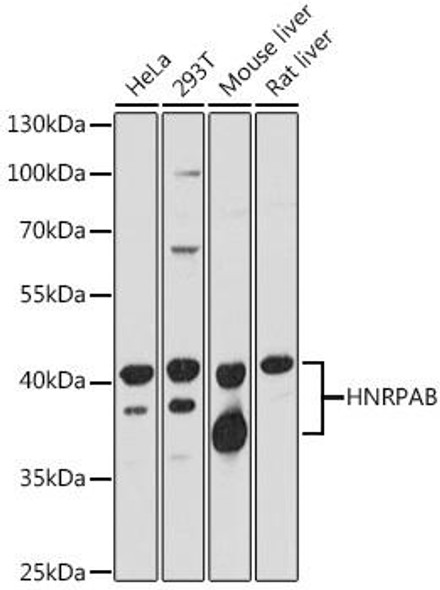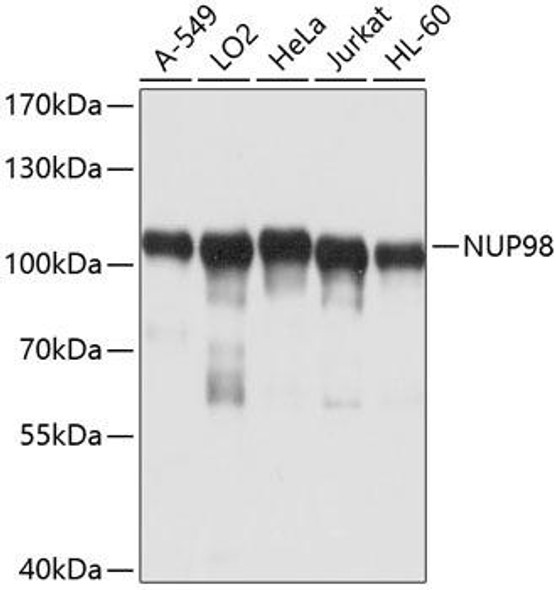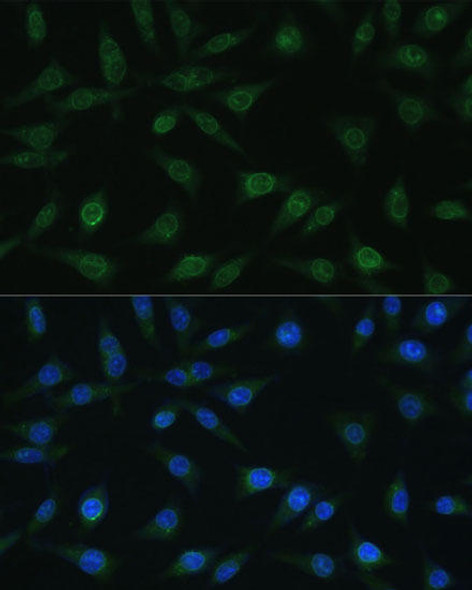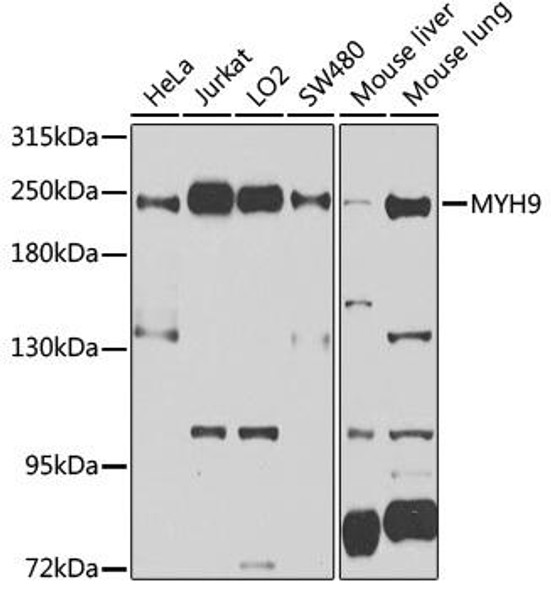Description
HRAS Rabbit Polyclonal Antibody (CAB12212)
The GTPase HRAS Polyclonal Antibody (CAB12212) is a critical tool for researchers studying the HRAS protein, a member of the RAS family of small GTPases known for their involvement in cell proliferation and differentiation. This antibody, generated in rabbits, is highly specific for human samples and has been validated for use in Western blot applications.HRAS is a key player in various cellular processes, including signal transduction and cell growth regulation. Dysregulation of HRAS signaling is associated with numerous diseases, particularly cancer, making it a promising target for therapeutic interventions.
The GTPase HRAS Polyclonal Antibody enables the detection and analysis of HRAS in different cell types, facilitating research in oncology and cell biology.By understanding the role of HRAS in cellular pathways, researchers can uncover new insights into molecular mechanisms underlying cancer development and progression. This antibody is instrumental in furthering our knowledge of HRAS biology and its potential implications for targeted therapies in cancer treatment.
| Product Name: | HRAS Rabbit Polyclonal Antibody |
| SKU: | CAB12212 |
| Size: | 20uL, 100uL |
| Isotype: | IgG |
| Host Species: | Rabbit |
| Reactivity: | Human,Mouse |
| Immunogen: | Recombinant fusion protein containing a sequence corresponding to amino acids 1-189 of human HRAS (NP_005334.1). |
| Sequence: | MTEY KLVV VGAG GVGK SALT IQLI QNHF VDEY DPTI EDSY RKQV VIDG ETCL LDIL DTAG QEEY SAMR DQYM RTGE GFLC VFAI NNTK SFED IHQY REQI KRVK DSDD VPMV LVGN KCDL AART VESR QAQD LARS YGIP YIET SAKT RQGV EDAF YTLV REIR QHKL RKLN PPDE SGPG CMSC KCVL S |
| Tested Applications: | WB IF/ICC ELISA |
| Recommended Dilution: | WB,1:500 - 1:2000 IF/ICC,1:50 - 1:200 |
| Synonyms: | CTLO; HAMSV; HRAS1; RASH1; p21ras; C-H-RAS; H-RASIDX; C-BAS/HAS; C-HA-RAS1; HRAS |
| Positive Sample: | Mouse brain |
| Conjugate: | Unconjugated |
| Cellular Localization: | Cell membrane, Cytoplasm, Cytoplasmic side, Golgi apparatus, Golgi apparatus membrane, Lipid-anchor, Lipid-anchor, Nucleus, perinuclear region. |
| Calculated MW: | 21kDa |
| Observed MW: | 19kDa |
This gene belongs to the Ras oncogene family, whose members are related to the transforming genes of mammalian sarcoma retroviruses. The products encoded by these genes function in signal transduction pathways. These proteins can bind GTP and GDP, and they have intrinsic GTPase activity. This protein undergoes a continuous cycle of de- and re-palmitoylation, which regulates its rapid exchange between the plasma membrane and the Golgi apparatus. Mutations in this gene cause Costello syndrome, a disease characterized by increased growth at the prenatal stage, growth deficiency at the postnatal stage, predisposition to tumor formation, cognitive disability, skin and musculoskeletal abnormalities, distinctive facial appearance and cardiovascular abnormalities. Defects in this gene are implicated in a variety of cancers, including bladder cancer, follicular thyroid cancer, and oral squamous cell carcinoma. Multiple transcript variants, which encode different isoforms, have been identified for this gene.
| Purification Method: | Affinity purification |
| Gene ID: | 3265 |
| Storage Buffer: | Store at -20℃. Avoid freeze / thaw cycles.Buffer: PBS with 0.01% thimerosal,50% glycerol,pH7.3. |





